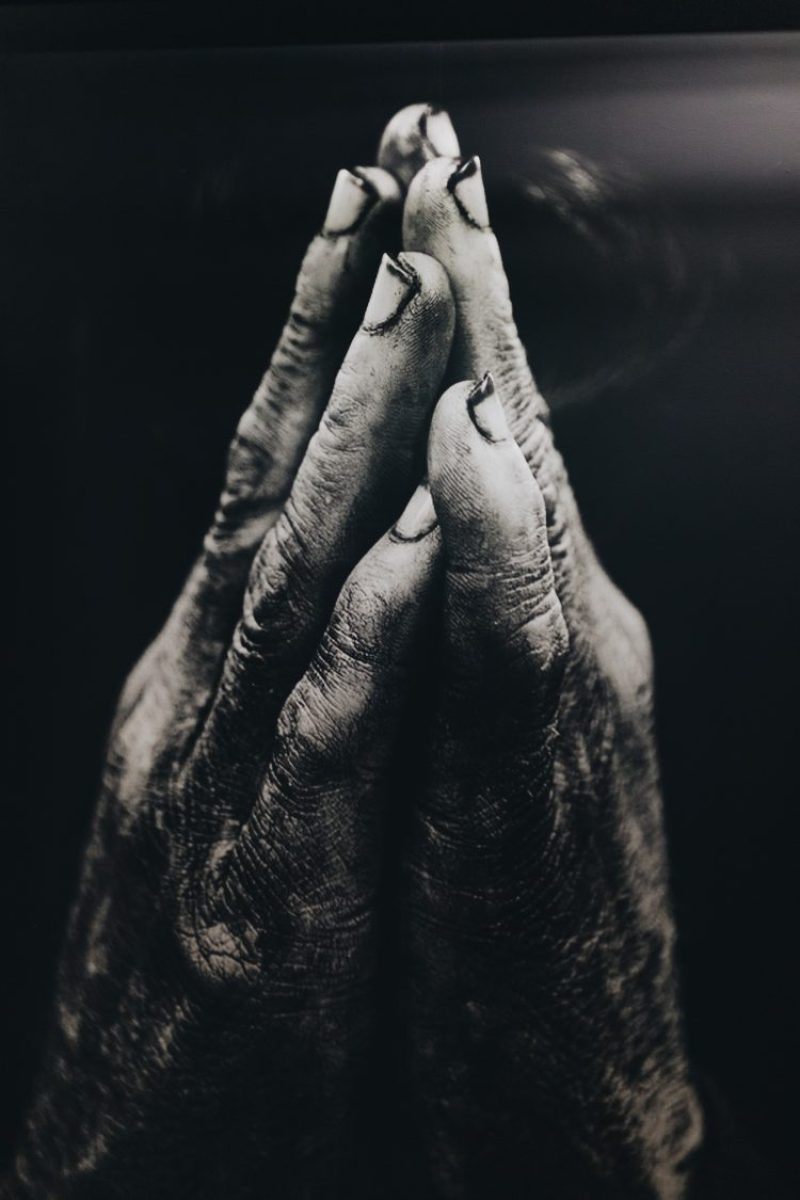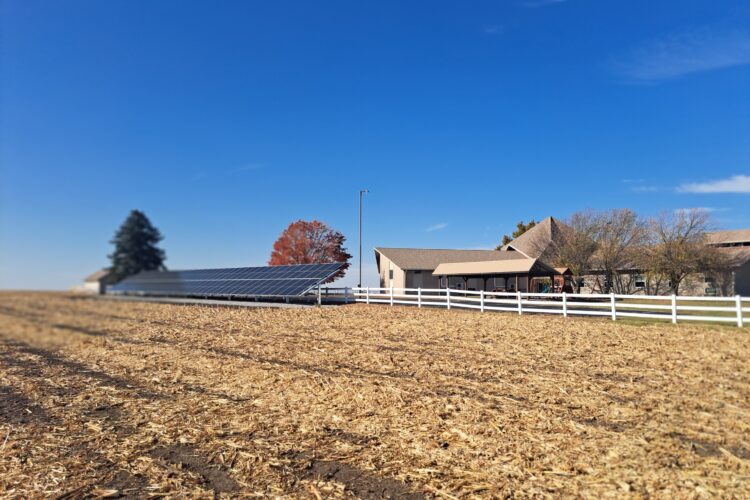Truth Is Something That Happens

by Louis Cox.
DO YOU SWEAR that the testimony you are about to give is the truth, the whole truth, and nothing but the truth, so help you, God?…
Early Quakers were known for their refusal to take such oaths in a court of law (often at the risk of fines and imprisonment). Sometimes their stand was explained by reference to the Bible: “But above all things, my brethren, do not swear, neither by heaven, neither by the earth, neither by any other oath; but let your words be yes, yes, and no, no, lest you fall under condemnation. [James 5:12]
But these Friends were not just obeying written commandments. Oath-refusal and other distinctive practices came to be known as “testimonies” only because these actions were bearing witness to a deeper spiritual Truth. The Kingdom of God is not an ideal or hope projected into the future. It is emerging here and now through our actions and examples.
Gray Cox put it this way in his Pendle Hill Pamphlet, Bearing Witness-Quaker Process and a Culture of Peace:
…Quakers view truth as something that happens, it occurs…Truth is not a dead fact which is known: It is a living occurrence in which we participate…
The guiding concern of people bearing witness is to live rightly, in ways that are exemplary. Insofar as they have an end they aim at, it is perhaps most helpful to think of it as the aim of cultivating their souls and converting others…..
Quakers are convinced that genuine leadings all proceed from a common ground, spring from a unity which we seek and find…

SO WITH THE UNDERSTANDING that testimonies are inward but corporately tested leadings, not outward, fixed rules, let us turn to a relatively recent leading among Friends regarding the growing global environmental crisis. This is part of a broader movement within many faith traditions, based on the growing conviction that the deteriorating health of the planet has profound moral and spiritual implications that science and public policies cannot address.
Some Friends understand this new concern in terms of historic testimonies of simplicity, peace, equality, and integrity. Others see it as the emergence of a new Quaker testimony that incorporates modern worldviews.
Marshall Massey, speaking at Friends General Conference in 1987, summarized the mounting and disturbing evidence that human activities are causing major environmental disruption. But, he noted, the world, by and large, is not responding to scientists’ warnings at the level that minimally would be needed to avoid ecological collapse. It is obvious that knowledge alone is not enough. One reason for our denial and inaction as a faith community, Massey said, is that we have lost touch with the spiritual core of our testimonies. Only when we have penetrated to the heart of a concern (as early Friends did when they finally came to terms with the slavery issue) can we tap its power to transform our lives and significantly alter our destructive personal and corporate behavior, he said.
Since then, numerous Friends Meetings and organizations around the world (including Quaker Earthcare Witness) have tried to discern the connection between their environmental concerns and the “spiritual core” of their Quaker faith. Here is part of what a group of British Friends came up with recently:
A Quaker Testimony on Earth and environment
…New testimonies emerge as the reasons for them and the underlying spiritual basis of action becomes clarified. One such area concerns our stewardship of the environment. For many Quakers what has been an “emerging” testimony to the environment has now become an established one, with close links to the peace testimony and the testimony of simplicity.
The world is a wonderfully rich resource for our material and spiritual needs. We should treasure it and preserve its capacity to sustain and inspire. That, in turn, calls for a creative responsibility towards the earth we have inherited and for proper sharing. It means seeing “that of God” in the natural world around us, and being moved by considerations other than commercial gain. Habitats and species are sacrificed to products and services which are often far from essential. The future is constantly sacrificed to the present and the needs of others to the wants of the self. It cannot be right to leave the world poorer than we found it in beauty or in the rich diversity of life forms or to consume recklessly in the knowledge that our actions are bound to lead to future tragedy.
…Quakers recognize that their testimonies go against many of the current strands of economic, social, and political change. …We may be called to a style of living and generosity of giving that we cannot yet attain. But we seek to engage with others and the natural world as part of a wider spiritual consciousness. In the depths of our silent waiting, we find the place where words and deeds are one; our faith and our action are indivisible.
-from The Quaker Testimonies, by the Testimonies Committee of Quaker Peace & Social Witness, Friends House, London, England. Published by Quaker Books, March 2003. Reprinted by permission.
IN DISCUSSIONS around the question of whether an Earthcare testimony is emerging, some Friends have pointed out that testimonies tend to be more descriptive than prescriptive; and so before considering this leading a new “testimony” they would like to see more Quakers begin conducting their lives accordingly. It is true that only a minority of North American Friends have taken radical steps to simplify their lives and live more lightly on the planet. The best we might say today is that the Religious Society of Friends seems to be slowly moving toward an Earthcare testimony. But we must not underestimate the smaller steps that many Friends been led to take. Beneath many of those changes, we can discern the beginning of a change of heart, a stirring of conscience that may yet bear greater fruit
But time is running out The question at this point is, what will it take to capitalize on this shifting consciousness and get more well-intentioned folk to become a larger part of the solution to the planet’s deteriorating health and not just a smaller part of the problem? As Marshall Massey emphasized nearly 20 years ago, facts and reasoning alone do not lead people to make significant changes in their thinking and behavior. That, we believe, requires probing deep into ultimate questions about our purpose and role on this planet. As we try to articulate and apply what we have learned in those depths, we are creating a new testimony.
1. The historic roots of Quaker Earthcare.
JUST AS QUAKER TESTIMONIES on peace and equality were built on existing social movements, current Quaker Earthcare concerns have their roots in earlier secular conservation and environmental movements.
By the mid-20th century, it became apparent that fragile eco-systems were unraveling under the unforeseen effects of synthetic chemicals and development pressures, proving that the “enlightened” resource-management programs of the previous century were not capable of protecting nature from the onslaught of civilization. Others began to realize that nature is too complex for direct manipulation and began advocating a more ethical and cautious policy toward land use.
A “second wave” environmental movement focused on the reform of laws and institutions. It drew energy from the anti-war movement of the 60s and 70s, expressing disillusionment with the aggressive, materialistic side of the American Dream. However, despite landmark gains in the reform of laws and institutions, the movement seems to have accomplished little more than slowing down the pace of destruction of the natural world.
The late 20th century saw the rise of a “third wave”-interest in deep ecology and more grassroots, holistic approaches to human and environmental health. Focus began to shift to the systemic causes of social and environmental problems. Alliances grew to integrate such concerns as eco-justice, eco-feminism, eco-economics, and spiritual ecology. Meanwhile, modern scientific discoveries were providing a new understanding of the fundamental interrelatedness of everything. Fascinating parallels were seen between these new insights and the teachings of various religious traditions, including native wisdom, Buddhism, and Christian mystics of the Middle Ages.
It was during this period that many Quakers and members of other faith groups began to understand that the looming global environmental crisis was at heart a spiritual issue. They saw the problem as basically intractable because it grew out of modern humankind’s arrogance and alienation from the natural world. More and more frustrated activists have come to see that reforms that are radical enough to deal with this crisis can come only from deep changes in human attitudes and values, in effect, a spiritual transformation.
2. Scriptural roots of Quaker Earthcare.
THE AWAKENING OF QUAKERS and other faith communities to the environmental crisis has renewed interest in the scriptural basis of this concern. Scholars like Richard Cartwright Austin have found the Judeo-Christian scriptures to be rich in references to the wonders and beauty of creation. They have reminded the faithful that the original covenant was between God and all of creation. They have clarified that when God commanded his people to live in the right relationship this included responsible treatment of the land.
There have also been attempts to picture what biblical prophets might have said about care of God’s creation if in their day there had been an obvious ecological crisis as distressing as, say, the occupation of their land by foreign empires. Jack Phillips, in his essay, “The Spiritual Dimension-Why We Care for the Earth,” imagined an “Eleventh Commandment, expressing God’s will that we treat his entire creation lovingly.” In another example of “continuing revelation,” Jack suggested that Jesus, as someone very in touch with his time, would proclaim today a Third Great Commandment: “You shall love the Earth as you love yourself; care for her health and fitness and beauty as you care for your own body; and protect the earth as you would your own private property.”
Other historical research has uncovered a rich vein of nature-consciousness in the journals of Fox, Penn, Woolman, and other early Quaker writings, nourished in part by their lifelong immersion in the Bible. Early Friends’ awareness of the immanence of God’s spirit naturally led to a strong sense of responsibility for His creation. Contemporary writers, in addition to enlarging the scope of the original Quaker testimonies, have made connections to a widening circle of compassion and presumption of rights in Western culture: Whereas rights originally were accorded only to propertied men, the veil of discrimination has been parted (if not eliminated) for other classes, including women, people of color, children, and animals. In Quaker terms, this widening circle means opening ourselves to the idea that there is “that of God” in all of creation and not just other humans.
3. Historic Quaker testimonies and Earthcare.
IN THE COURSE OF OUR TRAVELS on behalf of Quaker Earthcare Witness, my wife and I have facilitated discussions of ways that we all can “walk more gently on the Earth” and experience a deeper spiritual relationship to Creation. Our presentations have resonated with many participants who are seeking greater meaning in their lives through greater “simplicity” or “simple living.”
However, nods of the agreement have been strongest when we have emphasized Earthcare as a reflection of integrity. This term refers not only to truthfulness but to wholeness and single-minded pursuit of the Good. Quaker history suggests that, in fact, all Friends testimonies spring from this principle.
What does integrity mean in practice and how do we foster it? Stephen Carter, in his 1996 book Integrity, says our expectations for integrity in ourselves and in our leaders are seldom met because most of us don’t realize integrity is a process that requires discipline and practice: 1) Making a personal commitment to right living, beyond the conventional expedient. 2) Devoting sufficient time and energy for discernment and periodic reassessment. 3) Acting upon our best understanding at the moment as to what is right. 4) Remaining open about what we are doing and why. To Carter’s list, we have added: 5) Shifting to a less human-centered perspective that values integrity not only for humans but for the entire life community
Wilmer Cooper’s 1991 Pendle Hill pamphlet, The Testimony of Integrity, reminds us that integrity involves obedience to the Light within. It is experienced when we allow our lives to become vehicles for God’s action in the world. By entering into a covenant with the divine order, we carry that covenant into all of our relationships, whether social, economic, political, or environmental. When we maintain our personal integrity, perhaps at the cost of short-term personal gain, we know that in the long-term we are also contributing to the integrity of the social systems and biological systems of which we are a part.
Simplicity and integrity in turn serve the cause of peace. Greed-driven exploitation of the earth is a form of violence that grows from the same roots as mistreatment of humans. When we finally realize that our personal happiness does not depend on high levels of material consumption, we begin to reduce competition for resources and take away the occasion of both war and ecological destruction. We are reminded of the tapestry in the William Penn House in Washington D.C. that states, “…How lightly might the earth support man forever” and the Quaker artist Edward Hicks’s depiction of the Peaceable Kingdom in images that were intercultural, intergenerational, and interspecies.
4. Quaker process and Earthcare
THE QUAKER PRACTICE of waiting for spiritual guidance is also an antidote to the haste and arrogance that have hastened the destruction of the earth. Similarly, the Quaker approach to conflict-resolution, a mutual search for truth rather than argument and debate, provides a good pattern for dealing with “conflicts” between humans and the natural world; too often we have waged “war” against some perceived threat in nature only to discover that we have wounded ourselves in the process, by ignorantly upsetting natural balances that benefit all. Searching for “win-win” solutions in our working relationship with nature also parallels the process of seeking unity in Quaker meeting for business: We may run into thorns of other Friends’ differing viewpoints and styles, but we end up with more workable and lasting decisions when everyone’s needs and interests are considered in the decision-making. It’s much the same in our dealings with nature.
5. An explicit Quaker Earthcare testimony?
WHILE MUCH HAS BEEN GAINED by applying existing Quaker testimonies and processes to environmental issues, there is also some basis for a Quaker Earthcare testimony that goes further.
Earthcare may be considered a new testimony to the extent that it draws on and expresses knowledge and perspectives that were not available to Friends in previous generations. For example, the modern science of ecology involves systems-thinking beyond the experience of earlier generations of Friends. Similarly, new tools for understanding earth processes, such as eco-economics and eco-psychology, mark a departure from the perspectives of older testimonies. A distinct Quaker testimony is also a better platform for appreciating the fact that we are part of a universe that is dynamic and creatively unfolding, in contrast to the old Newtonian paradigm of a clockwork universe.
A distinct Earthcare testimony also can make it easier for us to recognize the link between our personal behavior and possessions and events in other parts of the world. This is similar to the breakthrough that John Woolman made two hundred years ago when he was able to see the connection between slavery and dye-making and began wearing only undyed clothes. In the current age of economic globalization, we need a similar lens to help us know when humans and natural systems around the globe are being oppressed and abused in the production of goods that we otherwise might want to buy.

